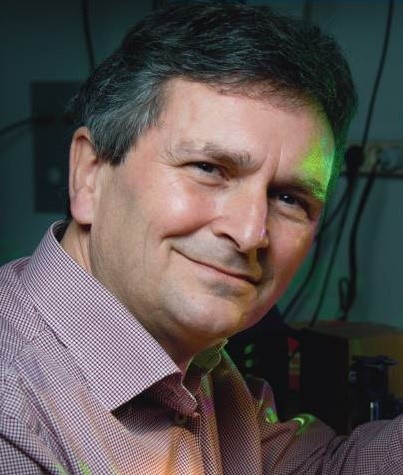
Director Center of nano- and biophotonics,
 Roel.Baets@UGent.be
Roel.Baets@UGent.be +32-9-264 3329
+32-9-264 3329 @RoelBaets
@RoelBaets

 0000-0003-1266-1319
0000-0003-1266-1319 google scholar link
google scholar link
Roel Baets is a full professor at Ghent University (UGent) and is also associated with IMEC, both in Belgium. He received an MSc degree in EE from UGent in 1980 and a second MSc degree from Stanford University in 1981. He received a PhD degree from UGent in 1984. From 1984 till 1989 he held a postdoc position at IMEC. Since 1989 he has been a professor in the Faculty of Engineering and Architecture of UGent where he founded the Photonics Research Group. From 1990 till 1994 he has also been a part-time professor at Delft University of Technology and from 2004 till 2008 at Eindhoven University of Technology.
Roel Baets has made contributions to research on photonic integrated circuits, both in silicon photonics and in III-V semiconductors, including their heterogeneous integration. In recent years his research gradually moved to the application level, especially with focus on medical and environmental sensing.
Roel Baets chairs the Photonics Research Group at UGent-IMEC. With 12 professors and 75 researchers this group is involved in numerous research programs and has led to the creation of six spin-off companies.
Roel Baets has led major research projects in silicon photonics in Europe. In 2006 he founded ePIXfab, the globally first Multi-Project-Wafer service for silicon photonics. Since then ePIXfab has evolved to become the European Silicon Photonics Alliance. Roel Baets is also director of the Center for Nano- and Biophotonics (NB Photonics) at UGent, founded in 2010. He was co-founder of the European MSc programme in Photonics of UGent and VUB.
Roel Baets has been an ERC grantee of the European Research Council and a Methusalem grantee of the Flemish government. He is a Fellow of IEEE, of European Optical Society (EOS) and of Optica. He is a member of the Royal Flemish Academy of Belgium for Sciences and the Arts. He has been a recipient of the 2011 MOC award, of the 2018 PIC-International Lifetime Achievement Award and of the 2020 OSA-IEEE John Tyndall award.